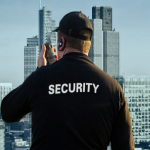Do I Have to Report a Crime that I’ve Seen?

A video taken on a mobile phone shows a huge crowd of college students on a beach in Florida, in the United States. Police are viewing it to investigate a shooting, but then something else emerges.
The video reportedly shows a number of young men gathered around a 19-year-old woman who is slumped in a beach lounge. Even in her intoxicated state, she is trying to remove their hands from her genital area. One male can allegedly be heard saying: “She isn’t going to know.”
Police allege that what follows is a gang rape in broad daylight, on a beach crowded with thousands of people during spring break last month. And no one came to the victim’s assistance or reported what they had seen.
The County Sheriff called the incident “one of the most disgusting, repulsing, sickening things I’ve seen this year.”
The woman later said that she had believed that she’d been drugged at the time and could not fully remember the incident, which is why she didn’t report it. There were three suspects in the alleged attack, two of whom have been arrested and charged.
The ‘bystander effect’
Witnessing a crime but failing to give assistance has been labelled the “bystander effect” by some commentators. It happens in Australia, too.
The Sydney Morning Herald reported that in 1974, two Queensland nurses were raped and murdered, even though there were up to 10 witnesses who had seen them trying to fight off some men on the night of their deaths. The nurses had also been heard screaming for help.
The bystander effect theorises that the more people who witness the incident and the longer the attack goes on, the less likely it is that anyone will step forward to assist. This could be because everyone thinks that someone else in the crowd is better suited to respond, or they simply do not know what to do.
Whatever the reason, it raises an important question.
Witnesses to crimes – the law in NSW
If you witness a crime and fail to do anything to stop it, or fail to report it to the police, can you be charged with a criminal offence yourself?
The short answer is that it depends on whether the crime being committed is a serious indictable offence, and whether the information that you have would provide material assistance law enforcement.
An indictable offence is an offence that is considered significant enough to be tried by a judge and jury in the supreme or district courts.
Serious indictable offences are any offences with carry a minimum penalty of five years’ imprisonment. They comprise a very wide range of offences, including ‘larceny’ (stealing), most assaults, sexual assaults, kidnapping and drug dealing.
In NSW, it is a crime under section 316 of the Crime Act to conceal a serious indictable offence, provided that the information that you possess could assist police to arrest or prosecute the offender and you don’t have a reasonable excuse for failing to report it.
This means that if you witness a crime, even if you are merely a bystander, or you know about a crime before or after it is committed, you can be charged with concealing a serious indictable offence. There is a penalty of up to two years’ imprisonment.
If you accept a benefit, for example money, to help conceal a serious indictable offence, you may be liable for up to five years’ imprisonment.
Are there exceptions?
Some people in the course of their work become aware that a serious indictable offence has been committed, but they are exempt from the requirement to report the crime. For example, doctors, lawyers and priests who are bound by confidentiality.
There are also mandatory reporting requirements for offences committed against children, for example abuse and neglect. This requirement is separate from the concealing offence in the Crimes Act, and applies to anyone in the community who works with or has contact with children, including volunteers.
Failing to report in those circumstances does not carry a criminal penalty, unless a serious indictable offence has occurred, but there is a risk of disciplinary action or a civil claim for negligence.
What about lesser offences?
In the case of other indictable offences or summary offences, there is no such reporting requirement; examples include small drug possession and drink driving.
If you witness or become aware of a minor crime, you are encouraged by police to report it either to the police force or anonymously to Crimestoppers, but there are no penalties for failing to do so.
Should onlookers be penalised?
As a community, we are shocked that people could stand by and watch someone helplessly trying to fend off an attack against them.
But at the same time, the law is reluctant to impose positive obligations on members of the community. This issue was covered in a recent blog we published about a person’s obligations (or lack thereof) when witnessing a child drowning.
Some argue that people should never be forced to go out of their way to help others regardless of how morally reprehensible that conduct might be. Some might argue that prosecuting people for failing to report goes one step further, forcing individuals to go out of their way even after the threat or danger has subsided.
On the other hand, some may argue that the obligation to report is justified on public policy grounds; specifically, that the community interest in bringing offenders to justice is so strong that it warrants an intervention into personal liberties, namely the requirement to pick up the phone and report the incident.
If you are in doubt about something that you have witnessed, or fear being reported by someone, you may wish to seek legal advice from experienced criminal lawyers regarding reporting requirements in your particular situation, your options and the best way forward.






